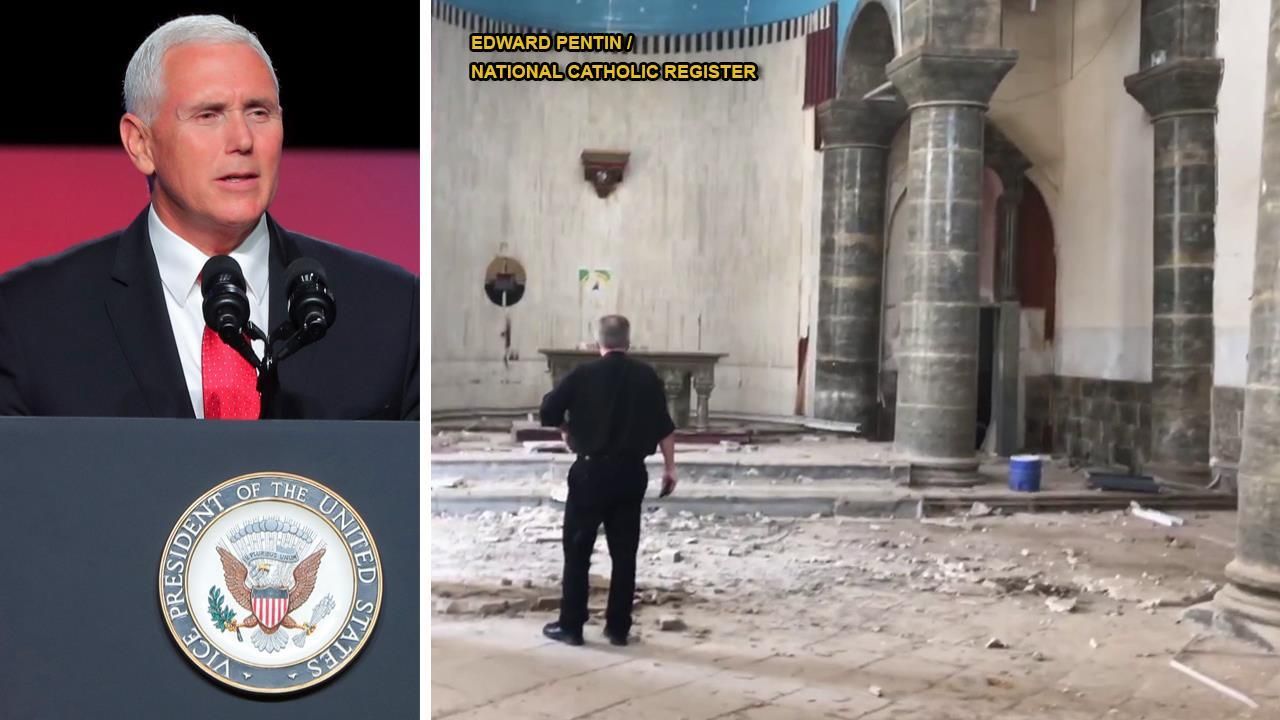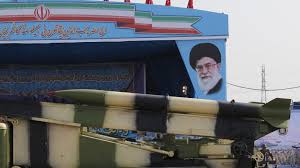Iran sentenced us to death for being Christian. We pray America will welcome more grateful refugees like us

The Iranian government arrested, imprisoned and sentenced us to death because of our evangelical Christian faith in 2009.
Last month, we shared our story, testifying to the brutal restrictions on religious freedom in our home country, at the U.S. State Department’s first-ever Ministerial to Advance International Religious Freedom.
We thank God for all the ways America’s leaders are seeking to advance religious freedom throughout the globe, affirming that no one should be forced to choose between practicing their faith and living safely in their country. Until Iran and other repressive regimes respect religious freedom, though, we pray that persecuted Christians and other religious minorities will continue to have access to the U.S. refugee resettlement program.
Both of us grew up in nominally Muslim families but became Christians as young adults. We met while studying leadership and attending Christian seminars together in Turkey, then returned to Iran to share our faith. We were both arrested and spent 259 days in Tehran’s notorious Evin Prison, where we learned why Iran is classified as among the countries where followers of Christ face the most extreme persecution.
We endured daily interrogations and threats, but by God’s grace and a great deal of international advocacy on our behalf, we were eventually released. In 2010, we had to leave our country and move to Turkey, where we registered as refugees. One year later, we were selected by the U.S. State Department and resettled in Atlanta, Georgia. We will forever be thankful to America for welcoming us and offering us the freedom to live out our faith without fear.
We’re saddened, however, that very few persecuted Iranian Christians today are being offered the opportunity that we received. Since 2008, according to the State Department’s Refugee Processing Center, more than 16,000 Iranian Christians have been able to come through the U.S. refugee resettlement program, as have an additional 10,000 other religious minorities, including adherents of the Jewish, Baha’i and Mandaean faiths, who also face mistreatment from the Islamic government of Iran.
The new U.S. policy is keeping the victims of a corrupt and abusive government from coming to America, even while some government officials and their families are among the very few able to obtain visas.
This year, however, those numbers have dropped dramatically. A mere five Iranian religious minorities have been allowed to enter the U.S. as refugees, down more than 99 percent from just two years ago.’
The same holds true of refugees from other countries. In 2016, the U.S. welcomed 6,436 Christian refugees from the 11 countries where Christians face the “most extreme” persecution. Thus far in 2018, only about 600 Christians from these countries have been accepted.
The U.S. government cites “security concerns” as the primary rationale for the dramatic slowdown in refugee processing. We know better than most Americans just how vital it is that the U.S. keep out those who would do harm, and we’re grateful that each refugee is vigilantly vetted. The last thing we want is for those who imprisoned us to be able to reach us here.
What most Americans probably don’t realize is that the U.S. government already has an extremely thorough vetting process set up, including multiple biographic and biometric background checks and thorough interviews by Homeland Security officers.
That vetting system has actually been remarkably successful. Since 2001, about 940,000 refugees have been welcomed to the U.S. Not a single one has taken an American life in a terrorist attack. Of these refugees, far more have been Christians than any other religion, and this includes many – like the two of us – who were persecuted particularly because of their faith.
The new U.S. policy, though, is keeping the victims of a corrupt and abusive government from coming to America, even while some government officials and their families are among the very few able to obtain visas.
The U.S. should be proud of its history as a beacon of safety, compassion and freedom. But if it wants to retain that history, it needs to change course to admit more refugees.
Instead, things are moving in the opposite direction.
On Monday, Secretary of State Mike Pompeo announced a ceiling for refugee admissions into the U.S. of 30,000 for the 2019 fiscal year – lower, even, than the historically low 45,000 for the 2018 fiscal year. Sadly this means that even fewer persecuted Christians and other religious minorities will find refuge in year ahead.
And the longer that refugee resettlement is slowed, the more long-term harm is done to the infrastructure of faith-based non-profit organizations.
Such organizations, built over decades of public-private partnership, play a crucial role in helping refugees integrate when they arrive. World Relief Atlanta, the evangelical ministry that helped us adjust to our new home, has been forced to lay off 21 of its 30 staff i




